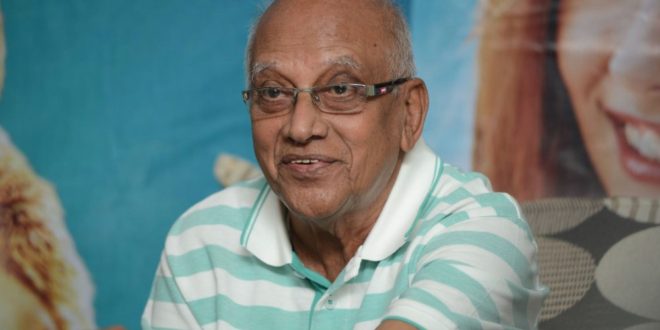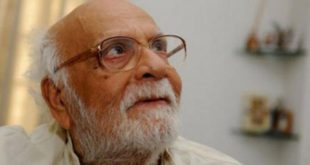Singeetam Srinivasa Rao (born 21 September 1931) is an Indian film director, producer, screenwriter, composer, singer, lyricist and actor, known for his works in Telugu, Tamil, Kannada, Malayalam and Hindi films, across multiple genres. The octogenarian is widely regarded as one of the versatile directors of India. He is credited with having revolutionised the South Indian cinema with experimental films. He has garnered two National Film Awards, six state Nandi Awards, three Filmfare Awards South, and three Karnataka State Film Awards.
In 2010, Srinivasa Rao headed the Jury of the Indian Panorama at the 8th Chennai International Film Festival. In 2011, Rao received the Life Achievement Award from the Film Federation of India at the 4th Global Film Festival. Rao was also the Guest of honor alongside Barrie Osbourne at the Media and Entertainment Business Conclave 2012 hosted by FICCI and FFI. In 2012, Rao served as one of the selection committee member for the Sundance Institute’s screenwriters lab.
The 2003 animation film, Son of Aladdin had 1100 shots and 125 characters. The film won Special Mention in the Competition section at the 2003 International Children’s Film Festival Hyderabad, and was subsequently premiered at the 37th International Film Festival of India.The 2008 animation film Ghatothkach, was premiered at the 2008 Cannes Film Festival in the Critics’ Week section, and was also premiered to special mention at the Grand Finale – Children’s Film Festival 2014 of the 44th International Film Festival of India.
Rao served as the executive director for the 1970 Kannada film, Samskara which won the National Film Award for Best Feature Film, and Bronze Leopard at the Locarno International Film Festival. He made his Telugu directorial debut with Neethi Nijayithi (1972). He then directed social problem films like Dikkatra Parvathi (1974), which won the National Film Award for Best Feature Film in Tamil, Filmfare Award for Best Film – Tamil for that year, and Tharam Marindhi, which won Nandi Award for Best Feature Film, both of which were premiered at International Film Festival of India and the Moscow Film Festival. The 1988 silent film, Pushpaka Vimana gained international acclaim, including 1988 Cannes Film Festival premiere in the International Critics’ Week. The film has received the National Film Award for Best Popular Film Providing Wholesome Entertainment, and Filmfare Award South for Best Film.
 TOLLYWOOD CREW
TOLLYWOOD CREW





